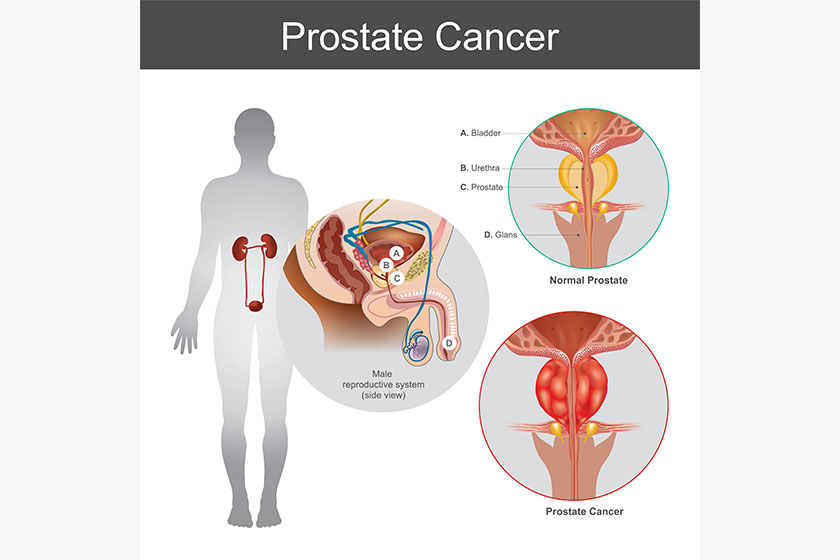Prostate cancer is a prevalent concern among men, particularly as they age. As you enter your 60s, taking proactive steps to maintain a healthy lifestyle can significantly reduce your risk of developing this disease. By making informed choices about diet, exercise, and routine screenings, you can prioritize your prostate health and enhance your overall well-being. Engaging in regular physical activity, consuming a diet rich in fruits, vegetables, and whole grains, and avoiding processed foods and excessive red meat can help. Moreover, annual check-ups and prostate-specific antigen (PSA) tests can detect prostate cancer early, when it’s most treatable. Remember, awareness and preventive measures play a crucial role in combating prostate cancer.
Understanding Prostate Cancer
Before delving into preventive measures, it’s essential to grasp the basics of prostate cancer. The prostate is a small gland located below the bladder and in front of the rectum, playing a crucial role in the male reproductive system. Prostate cancer occurs when cells in the prostate gland mutate and multiply uncontrollably, forming tumors.
The Importance of Prevention
While prostate cancer is a serious condition, many cases are highly treatable when detected early. Prevention efforts focus on minimizing risk factors and adopting healthy habits that support prostate health. By implementing lifestyle changes in your 60s, you can take proactive steps to reduce your likelihood of developing this disease.
Maintain a Healthy Diet
A balanced diet rich in fruits, vegetables, whole grains, and lean proteins is vital for overall health and well-being. When it comes to prostate cancer prevention, certain dietary choices can make a significant impact. Incorporating foods high in antioxidants, such as tomatoes, berries, and leafy greens, may help protect against prostate cancer. Additionally, limiting red meat and processed foods, which have been linked to increased cancer risk, is advisable.
Stay Active with Regular Exercise
Regular physical activity is crucial for maintaining optimal health, including prostate health. Engaging in regular exercise can help manage weight, reduce inflammation, and improve circulation, all of which contribute to a lower risk of prostate cancer. Aim for at least 150 minutes of moderate aerobic activity or 75 minutes of vigorous activity each week, supplemented by strength training exercises to maintain muscle mass and bone density.
Prioritize Regular Screenings
Routine screenings, including prostate-specific antigen (PSA) tests and digital rectal exams (DREs), play a vital role in the early detection and treatment of prostate cancer. While these screenings may not prevent the disease outright, they can detect abnormalities in the prostate gland before symptoms manifest, allowing for timely intervention and improved outcomes. Discuss the frequency and necessity of screenings with your healthcare provider based on your risk factors and health history.
Embrace Stress Reduction Techniques
Chronic stress can have a profound impact on overall health and may contribute to an increased risk of prostate cancer. Incorporating stress reduction techniques such as mindfulness meditation, yoga, deep breathing exercises, or spending time in nature can help alleviate stress and promote relaxation. Prioritize self-care activities that nurture your mental and emotional well-being, reducing the detrimental effects of chronic stress on prostate health.
While the risk of prostate cancer increases with age, there are numerous steps you can take in your 60s to reduce your likelihood of developing this disease. By adopting a healthy lifestyle that includes a balanced diet, regular exercise, routine screenings, limited alcohol consumption, weight management, and stress reduction techniques, you can prioritize your prostate health and enhance your overall well-being. Consult with your healthcare provider to develop a personalized prevention plan tailored to your individual needs and risk factors. Taking proactive steps today can significantly impact your prostate health and reduce your risk of developing prostate cancer in the future.







